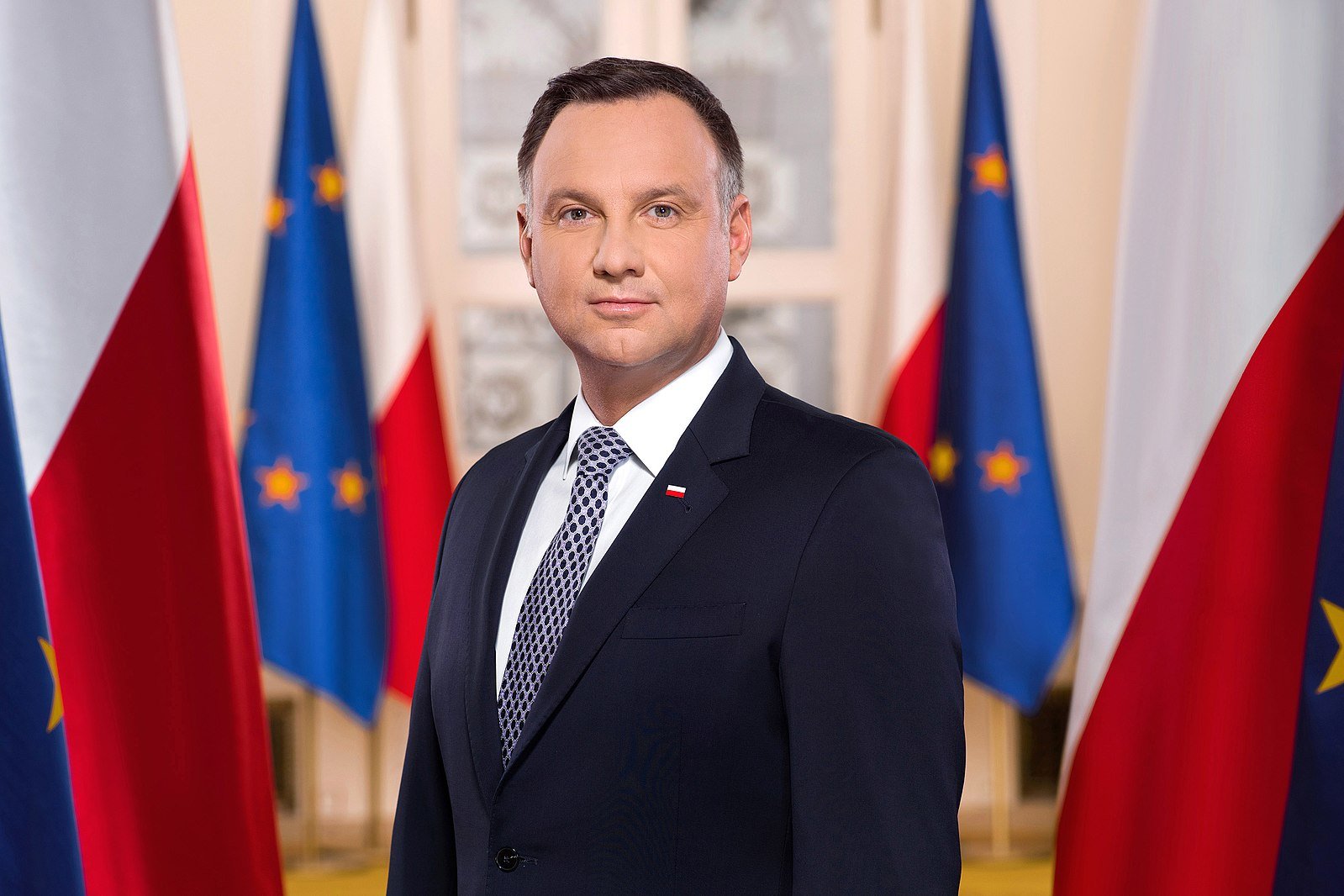ANALYSIS: Poland and Hungary, Eurosceptic Allies, Diverge on Aid to Ukraine
Polish President Andrzej Duda has offered support to Ukraine, unlike his Hungarian counterpart (Wikimedia Commons).
In the summer of 2022, Poland and Hungary appeared to be heading towards a rift over Russia’s invasion of Ukraine. In July, Polish prime minister Mateusz Morawiecki announced that “the paths of Poland and Hungary have diverged,” according to Notes from Poland. Hungarian prime minister Viktor Orbán concurred, noting that the war had “shaken” collaboration between the two countries.
Both nations’ actions seemed to match their words. According to the Institute for the World Economy, Poland was the third largest donor of military aid to Ukraine as of October 3rd. In that time, the UNHCR reported that Poland accepted the highest number of Ukrainian refugees of any European Union country, a departure from their previous migration policy.
Business Insider noted that as Polish support for Ukraine increased, President Andrzej Duda criticized other European countries for reticence in supporting Ukraine, specifically condemning German and French leaders for maintaining contact with Vladimir Putin.
Hungary’s government tacked a different course. BBC reported that after winning a supermajority in Hungarian elections held on April 4, Orbán included “the Ukrainian president,” Volodomyr Zelensky, among his “opponents.” Hungarian officials publicly embraced Russia, both as an ideological model and trading partner, according to Foreign Policy magazine.
Hungarian policy followed this hostile public line. According to Reuters, the Hungarian government opposed the imposition of new sanctions against Russia, especially energy sanctions. In July, Orbán even sought to expand Russian gas imports, a stark departure from EU policy. Although Hungary accepted nearly one million Ukrainian refugees, Hungary explicitly refused to send military aid to Ukraine, according to Euractiv.
These divergences were unthinkable prior to the outset of the conflict. Hungary and Poland were once lockstep allies, mutually opposed to European integration. Both joined together to block EU attempts to limit their membership rights over rule of law concerns. Moreover, Al Jazeera reported that both Hungary and Poland opposed the admission of refugees into their country during the Syrian refugee crisis.
Hungarian and Polish alignment over the EU reflected a broader national-conservative ideological alignment between the two states. Both Hungary’s Fidesz and Poland’s Law and Justice -- each state’s ruling party -- emphasize the centrality of Christian values and the nation-state to their respective societies, in an article published in the Friedrich Ebert Stiftung. Each views the EU as a threat to the traditional societies they seek to establish.
For pro-EU forces, Polish misalignment with Hungary over Ukraine seemed like an opportunity to permanently cleave Hungary and Poland. Wojciech Przybylski, editor in chief of the Visegrad Insight, suggested to Foreign Policy Magazine that the animosity provided an opportunity to invoke Article 7 of the EU charter, restricting Hungary’s participation in the EU.
Despite this apparent animosity, however, the Polish-Hungarian alliance has continued to reliably oppose the EU. On September 20, Moriawekci announced Poland would attempt to prevent the EU from suspending pandemic aid to Hungary, according to Euractiv.
It appears as long as Eurosceptic national-conservatives continue to rule in both Hungary and Poland, their joint opposition to EU investigations will inhibit decisive action against either state, notwithstanding public disagreements over the war in Ukraine.
However, the political dynamics could soon turn. Poland’s Law and Justice party has trailed the pro-EU and liberal Civic Platform party, whose victory would isolate Hungary in the European Commission and provide an opportunity to invoke Article 7.

